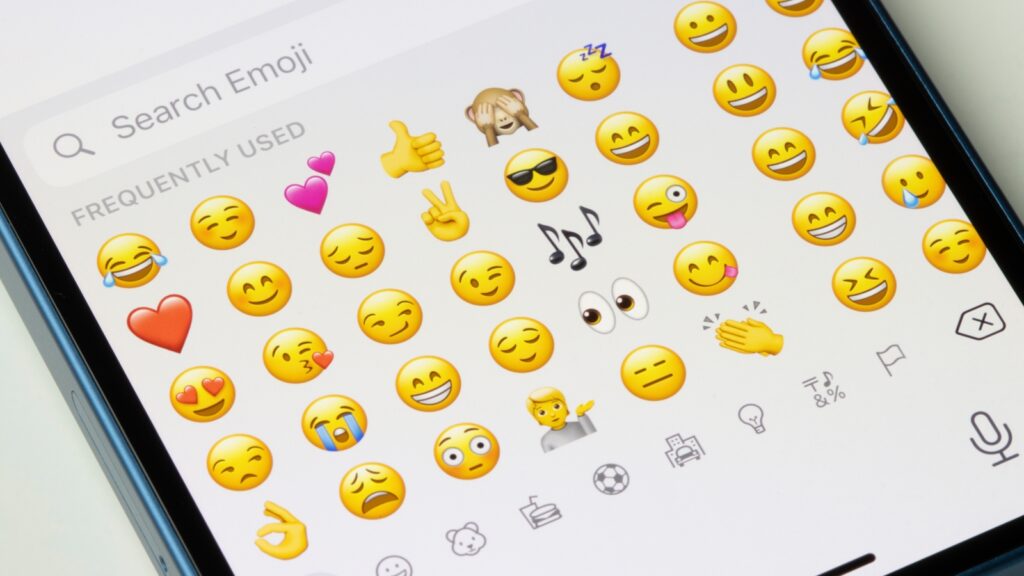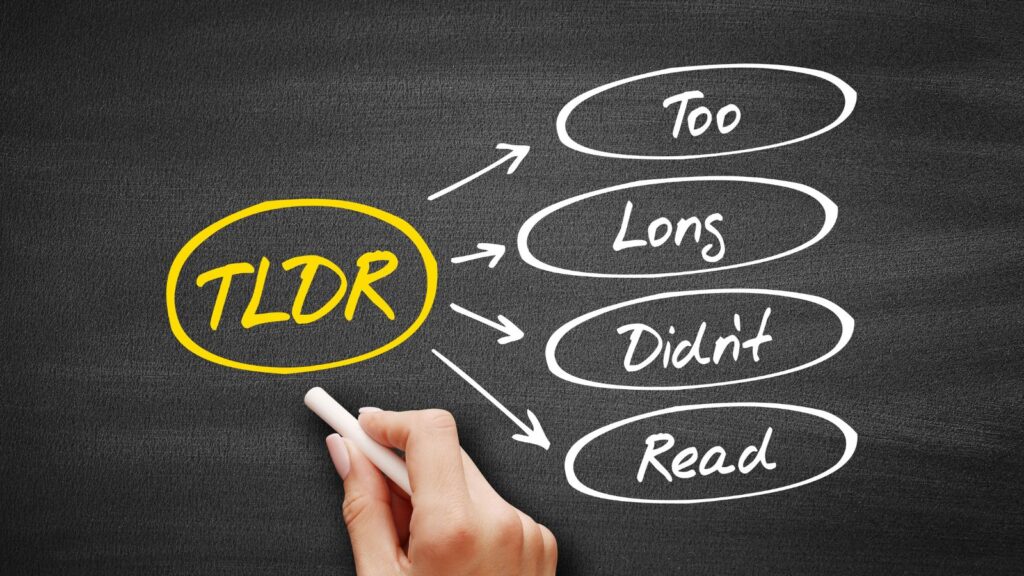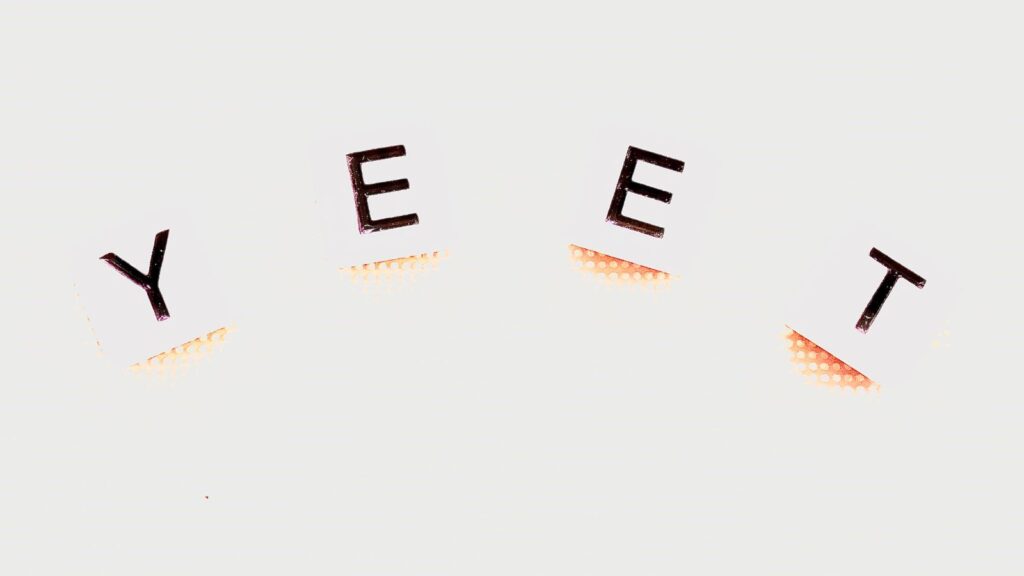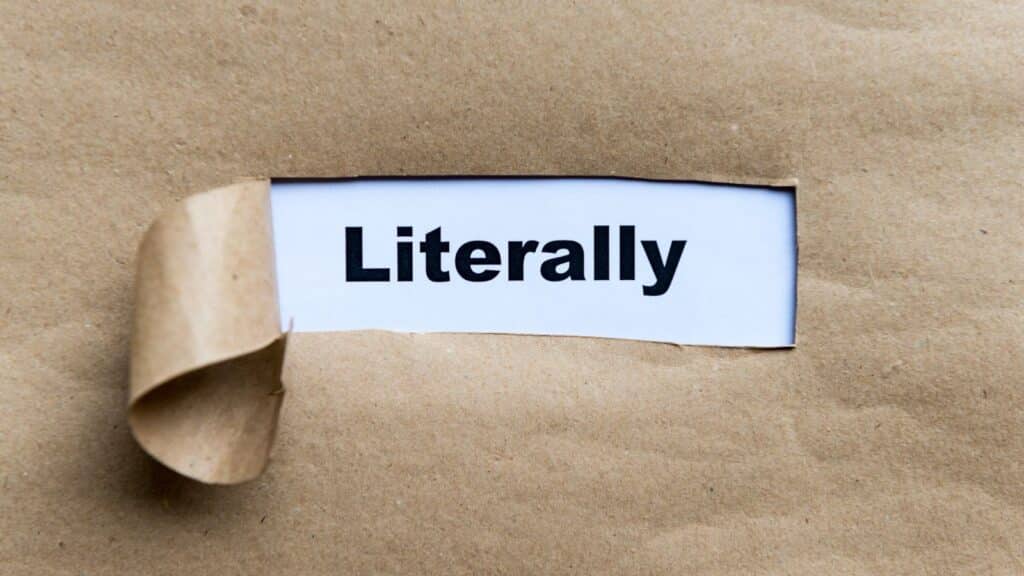Modern language evolves quickly, influenced by social, technological, and cultural factors. New words and phrases often emerge within social groups, like teenagers or online communities. This has led to calls by some that language is worrying, as demonstrated by these 21 additions to the English dictionary
Clickbait

“Clickbait” officially entered the Oxford English Dictionary (OED) in 2016, with edits made in 2023. The word refers to headlines designed to be sensational and misleading to attract attention. Brands make these headlines to draw engagement to their website, often with disregard for people who may be hurt in the process.
Dumbing Down

The term “dumbing down” refers to the perceived simplification of language or content. An example of “dumbing down” is when publishers simplify classic texts so that children can understand them. Many people embrace the act of simplifying things, but some people do not accept the term.
Emoji-Speak

Excessive reliance on emojis to convey emotions or ideas is known as emoji-speak. Some people cringe at the mere mention of this phrase, never mind actually witnessing it in action. To add fuel, older generations are confused that Gen Z doesn’t even use the right emojis. For example, a skull emoji traditionally represents something scary but is used instead of a laughing emoji.
Ghosting

Ghosting is the abrupt cessation of communication with someone, usually in a relationship. While some people frown at this addition to the modern language, research shows that between 13% and 23% of people say they have been ghosted in a relationship.
Hype

“Hype “ is described as excessive promotion or exaggeration, such as a new pop star or a trendy restaurant that has just opened. Some people love the word, but others feel that it is overused and repetitive.
Insta-Worthy

Young and old people use the phrase “Insta-Worthy” when they consider something suitable for posting on Instagram. With 2 billion active Instagram users, you can see why people strive to create good content. However, some people frown at social media language entering the mainstream.
TLDR (Too Long; Didn’t Read)

“TLDR” is a modern term for people who lack patience for lengthy content. It is mostly used by young people, and it’s likely that those who oppose it don’t really use it or understand the need for it.
Low-Hanging Fruit

The term “low-hanging fruit” is a metaphor for easy or readily achievable tasks, goals, or solutions. It’s often used in business contexts but can also apply to personal situations. Some people dislike the phrase because it implies that some are not worthy.
Memetic

“Memetic” is another social media phrase that describes content that can be used to create a meme. Many people enjoy memes and short-lived trends, but some feel that this type of language is having a negative effect on society.
On-Point

Language purists cannot understand why the term “on-point” is used instead of simply referring to something as accurate or relevant. One example could be, “Her presentation was on point. She covered all the important details and kept the audience engaged.” It could be argued that “ she delivered a great presentation is sufficient.
Salty

“Salty” is a trendy term that (mostly) young people use instead of saying they are upset or bitter. For some, “Salty” can be seen as overly casual or informal, especially when a more serious tone is appropriate. Those who dislike this term also argue that people use such words to look trendy without thinking of the impact it has on the person on the receiving end.
Shade

Throwing “shade” is showing subtle disrespect or disapproval so that you don’t offend people too much. But, most people who “shade” is aimed at will be upset by it and feel modern language doesn’t need another derogatory word.
Ship

To “ship” is to support a romantic relationship between two people, mostly fictional characters like Ross and Rachel from Friends. Some think it is a sign that people are becoming too obsessed with fictional life. Naysayers would prefer people to say something like “they make a good couple” and then leave it to the writers to see how the relationship goes.
Triggered

Ironically, many people are “triggered” by the term “triggered.” The term is used when someone is offended or upset by an event or action, such as a fight on the TV reminding someone of their abusive past.
Woke

To be “woke” is to be aware of and actively attentive to racial and social justice issues. The term is mostly used by the political right when the left is showing compassion, which is why it is so contentious.
Yeet

“Yeet” is another word that young people use every day, and mainly, older people don’t like it. It is used to express excitement or to describe throwing something with force, and some people just can’t get their heads around it.
“You Do You”

Technically, it’s a phrase rather than a word, but it’s annoying to some people nonetheless. “You do you” encourages people to follow their interests or desires but is said in a dismissive tone to imply others don’t agree with you.
ZOMG (Oh My God)

OMG, on its own, is enough to annoy lovers of the English language, but the extra “Z” takes it a step too far for many. “ZOMG” is internet slang for expressing surprise or excitement, and it is generally used by young or old people trying to stay young.
Literally

Used in the correct sense, “literally” is a perfect addition to the English language. But, these days, the word is used inaccurately in front of almost every sentence by some people. “I literally died” is a perfect example of this trend.
Fleek

“On fleek” is a slang phrase used to describe something as being stylish, perfect, or exactly right. People say it is too trendy and overused, which takes a shine off the compliment.
Feels

The most common use is to describe emotions or feelings. For example, “The movie gave me all the feels” means it evoked strong emotions in the viewer. People are asking why the word feelings can’t be used instead, as everyone knows what it means.
19 Grim Realities of Dating After 50 That Are Often Overlooked

19 Grim Realities of Dating After 50 That Are Often Overlooked
26 Things That Will Be Extinct Because Millennials Refuse to Buy Them

26 Things That Will Be Extinct Because Millennials Refuse to Buy Them
24 Outdated Slang Terms You Absolutely Shouldn’t Be Using Anymore

24 Outdated Slang Terms You Absolutely Shouldn’t Be Using Anymore
25 Hardest Parts About Getting Older That No One Ever Talks About

25 Hardest Parts About Getting Older That No One Ever Talks About




